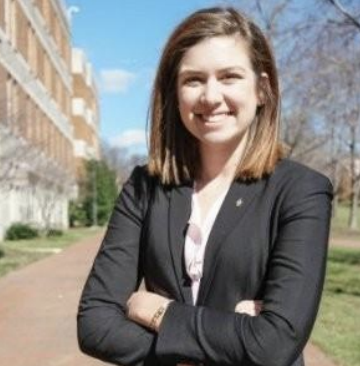
Name: Meghan Flaherty ‘18
Title: Actuarial Analyst
Employer: Willis Towers Watson (WTW)
Major: Economics B.S.
Minor: Statistics
What do you enjoy most about your current position?
My favorite part of my position at Willis Towers Watson (WTW) is getting to work on challenging projects alongside senior analysts and consultants every day and getting to see my work go directly to clients. The Arlington office does actuarial work for some of the largest US clients and as an entry-level analyst, or even as an intern, it feels good to know that the work I do on a daily basis is important. WTW has a system that allows even the newest member on a team to work on important tasks. An entry level employee or intern does all the calculations, then a senior analyst will check the math to make sure everything is accurate, and finally a consultant will ensure that the numbers make sense and answer a client’s question. This allows employees at all levels to work with one another directly and contribute to a project. It is nice to work with senior analysts and consultants because they have a lot to teach. This structure really helps create sense of community at the office. I know that if I go to any of the analysts, or consultants with a question about a team project, or an exam I am studying for and they would be more than willing to help.
What is a typical day like?
In order to become an accredited actuary you must take a series of exams (similar to CPA exams). WTW is supportive of their employees who are studying for exams, and has a program that allows analysts to take 8 hours per week during business hours to study for an upcoming exam.
- With that said, two days a week, I go to the public library, or find a conference room in the office and spend about 4 hours studying for my next exam.
- After studying, or on a day I am not studying, I usually attend team meetings, where we discuss upcoming projects and from there I am working with analysts and consultants on those projects.
- These projects typically involve looking at data received from clients, creating and updating detailed excel workbooks, and using WTW’s in-house software to calculate liabilities and create funding reports. The Arlington office is great because they use a “hoteling” system which means nobody has an assigned seat, but instead you can sit with whatever team you are working on for the day. It is not uncommon for me to switch desks throughout the day to be closer to the team I am working with.
Which undergraduate experiences did you find most helpful in preparing you for your position?
I found that previous internships helped prepare me the most for my current position. The summer after my freshman and sophomore years of college I had internships in fields not related to the actuarial profession. Even though those were not directly relevant to what I am doing now, they were helpful in the sense that I was able to learn more about being in a professional environment. I became confident in my ability to problem solve when working on a task, and when working with a team on a deliverable that is being sent to the client. Any kind of experience working will definitely help prepare you for a future career!
How has your coursework helped you?
As an Econ major, I took several technical classes that helped make the transition into the role as an analyst easier. I may not realize on a daily basis that I am using the economic principles that I learned throughout college every day, but it has been helpful to have that background. Additionally, I think the courses I have taken helped to make me a more well-rounded person. There is a lot of problem solving in actuarial consulting and because of the classes I took I am can bring a unique perspective to team discussions.
Job/internship advice?
1. If you are looking for an actuarial related position is to begin studying for an exam. Even if you don’t have an exam passed, I think a potential employer would be happy to know that you are committed to the exam process. If you are able to pass an exam or two in college, that is even better!
2. Take advantage of the career fair, and the alumni network the University of Maryland has to offer. I think the internet is flooded with online applications for jobs and internships, but if you can connect with a recruiter or an alumni in person, via email, or on LinkedIn you will have an advantage over the other candidates interested in working for the same company.
3. I think my biggest takeaway from my previous internships is that they don't have to be perfect- they are just a way to help you figure out if you want to start your career in a field. I went into college being certain I wanted to be a teacher, but after an internship working with a financial consultant, I realized I enjoyed working with numbers more than I thought I would enjoy teaching, so something in an office environment would be a better fit for me. You can use an internship as a tool to test drive a potential future career!

